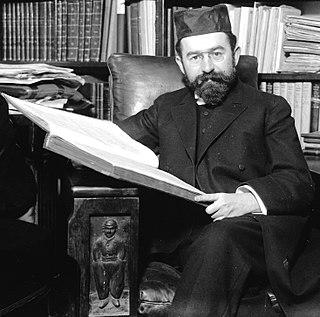A Quote by David Berlinski
Commentators who today talk of 'The Dark Ages' when faith instead of reason was said to ruthlessly rule, have for their animadversions only the excuse of perfect ignorance. Both Aquinas' intellectual gifts and his religious nature were of a kind that is no longer commonly seen in the Western world.
Related Quotes
In western civilization, the period ruled by mysticism is known as the 'Dark Ages' and the 'Middle Ages'. I will assume that you know the nature of that period and the state of human existence in those ages. The Renaissance broke the rules of the mystics. "Renaissance" means the "rebirth". Few people today will care to remind you that it was a rebirth of reason - of man's mind.
The dark ages still reign over all humanity, and the depth and persistence of this domination are only now becoming clear. This Dark Ages prison has no steel bars, chains, or locks. Instead, it is locked by misorientation and built of misinformation. Caught up in a plethora of conditioned reflexes and driven by the human ego, both warden and prisoner attempt meagerly to compete with God. All are intractably skeptical of what they do not understand. We are powerfully imprisoned in these Dark Ages simply by the terms in which we have been conditioned to think.
There can never be any real opposition between religion and science; for the one is the complement of the other. Every serious and reflective person realizes, I think, that the religious element in his nature must be recognized and cultivated if all the powers of the human soul are to act together in perfect balance and harmony. And indeed it was not by accident that the greatest thinkers of all ages were deeply religious souls
The world was sick, and the ills from which it was suffering were mainly due to the perversion of man, his inability to live at peace with himself. The microbe was no longer the main enemy; science was sufficiently advanced to be able to cope with it admirably. If it were not for such barriers as superstition, ignorance, religious intolerance, misery and poverty.
Faith is indeed intellectual; it involves an apprehension of certain things as facts; and vain is the modern effort to divorce faith from knowledge. But although faith is intellectual, it is not only intellectual. You cannot have faith without having knowledge; but you will not have faith if you have only knowledge.
The 500 years following the fall of the Western Roman Empire were dubbed by the poet Petrarch 'dark.' Although the 14th-century Italian was referring to a literary decline, the term caught on to denote the seemingly backward turn the Western world took with regard to religious and technological developments.
The most perfect philosophy of the natural kind only staves off our ignorance a little longer: as perhaps the most perfect philosophy of the moral or metaphysical kind serves only to discover larger portions of it. Thus the observation of human blindness and weakness is the result of all philosophy, and meets us at every turn, in spite of our endeavours to elude or avoid it.
We're all fools," said Clemens, "all the time. It's just we're a different kind each day. We think, I'm not a fool today. I've learned my lesson. I was a fool yesterday but not this morning. Then tomorrow we find out that, yes, we were a fool today too. I think the only way we can grow and get on in this world is to accept the fact we're not perfect and live accordingly.
And yet my, not only my faith, but my experience has led me to believe that the world is not a construction of space and time and matter and energy. That that mapping is insufficient. That the world is instead some kind of a linguistic construct. It is more in the nature of a sentence, or a novel, or a work of art than it is in the nature of these machine models of interlocking law that we inherit out of a thousand years of rational reductionism.



































